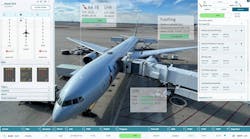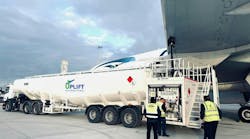Airports Council International Latin America and Caribbean (ACI-LAC) is urging governments across the region to implement relief measures to safeguard airport employment and connectivity. Revised ACI revenue forecasts show the 2020 impact of the pandemic now stands at US$3,6B for the region. A prolonged outbreak may result in a traffic volume loss in the range of 220 million passengers for the Latin American and Caribbean region.
The airport industry in Latin America and Caribbean employs more than 53 percent of aviation industry jobs, providing a variety of services ranging from airport management, maintenance, and security to retail outlets, food and beverage and duty-free concessionaires.
Taking into account the rapid developments, ACI estimates place the first quarter loss in the
region in the range of US700million, a large portion of which comes from the contraction in
traffic as well as non-aeronautical revenue.
“The updated estimations show an extremely challenging and complex future for our
members. Relief measures are needed for the entire aviation sector’s resilience to save jobs
and allow economic recovery.” said Rafael Echevarne, director general of ACI-LAC. “ACI-LAC strongly advocates for policy measures that benefit all parties of the aviation sectors and not benefit one actor at the expense of others.”
Specifically, ACI-LAC is urging governments of the region to implement the following
measures:
1. Provide economic, financial and fiscal relief measures to the airport and wider aviation
industry – Airports and air transport are crucial for the socio-economic functioning of
the Latin American and Caribbean nations. We urge governments to consider
immediate economic, financial and fiscal relief measures to support the industry at
this critical time and to help it recover and develop.
2. Waive concession fees for airports – Where applicable, regional governments are
urged to relax conditions of payment of the concession fees companies must pay for
the operation of airports. Concession fees can represent a significant cost for airport
operators.
3. Delay infrastructure investment requirements – Provide temporary relief in the
requirement to develop infrastructure, particularly in order to comply with level of
service obligations or projects which are not immediately required by the industry.
4. Temporary relief from compliance with quality of service obligations – Airports are
experiencing unprecedented operational circumstances which are putting undue
pressure on operators. Consequently, regulators should relax quality of service
obligations until operations return to normal.
5. Support the suspension of the 80/20 slot rule for a limited period for severely affected
markets, in consultation with airport operators, airlines and slot coordinators.



